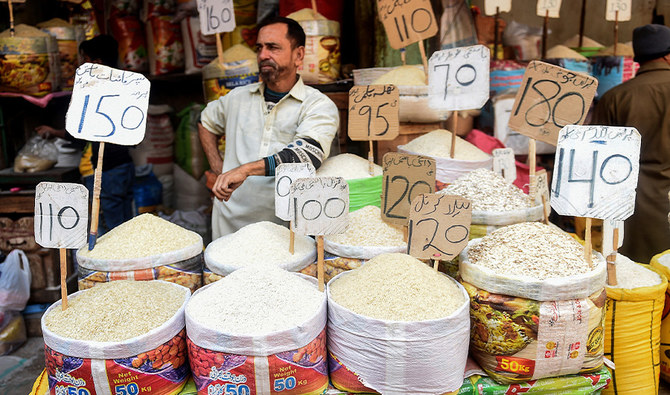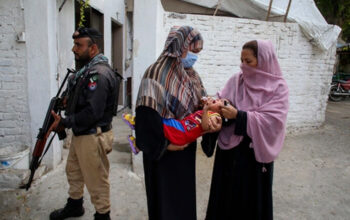By Staff Reporter
ISLAMABAD: A biggest jump in food prices pushed Pakistan’s inflation a 48-year high in January in a new blow for households grappling with a cost-of-living crisis in the cash-strapped country.
Consumer price index rose 27.5 percent year-on-year in January. Prices were up 2.9 percent from the previous month, the Pakistan Bureau of Statistics (PBS) said in a statement. In December, the CPI rose 24.5 percent on year.
Inflation is at the highest since May 1975, according to central bank data.
Pakistanis are experiencing inflation at levels not seen for decades as prices surge for essentials like food, energy, transport, and accommodation.
Food inflation increased by 42.9 percent year-on-year, and by 5 percent over the last month. While perishable items were up 61.6 percent over the last year, their prices fell 1.76 percent from December 2022.
Urban core inflation rose 15.4 percent year-on-year, and 1.4 percent from December, while rural core inflation rose 19.4 percent compared to last year, and 1.5 percent compared to last month.
The figures hammered home the difficult environment for households, especially those on the lowest incomes, who face new uncertainty about the extent of financial support available to them after Pakistan and the IMF started talks to revive a stalled bail-out programme.
Pakistan’s ninth review of staff-level talks with the IMF for the release of its next tranche started just two days back after a delay of almost five months on differences on several issues. The IMF program requires Pakistan to implement strict economic reforms as well as withdraw all subsidies.
The government last week enhanced the prices of petroleum by Rs35 per litre and devalued its currency by almost 13 percent ahead of talks with the IMF.
Mohammed Sohail, CEO at the brokerage Topline Securities, said the inflation statistics were expected after the rupee’s fall over the last few days.
“This takes seven months of the current fiscal year’s (7MFY23) average inflation to 25.4 percent compared to 10.3 percent in the same period last year. Inflation remained higher than market expectations.”
The latest inflation print is higher than the central bank’s November forecast of 21 percent-23 percent for the year ending June, which was already revised higher from a projection made in October.
Analyst Ankur Shukla of Bloomberg Economics said inflation is likely continuing to accelerate “as the government scrambles to fulfill the International Monetary Fund’s aid conditions to secure much-needed dollars”.
“We see inflation climbing in coming months on a combination of rupee depreciation and hikes in fuel prices and electricity tariffs. The government could raise additional taxes on the IMF’s insistence.”
Shukla said the move would likely push the State Bank of Pakistan to increase interest rates further.
Copyright © 2021 Independent Pakistan | All rights reserved




